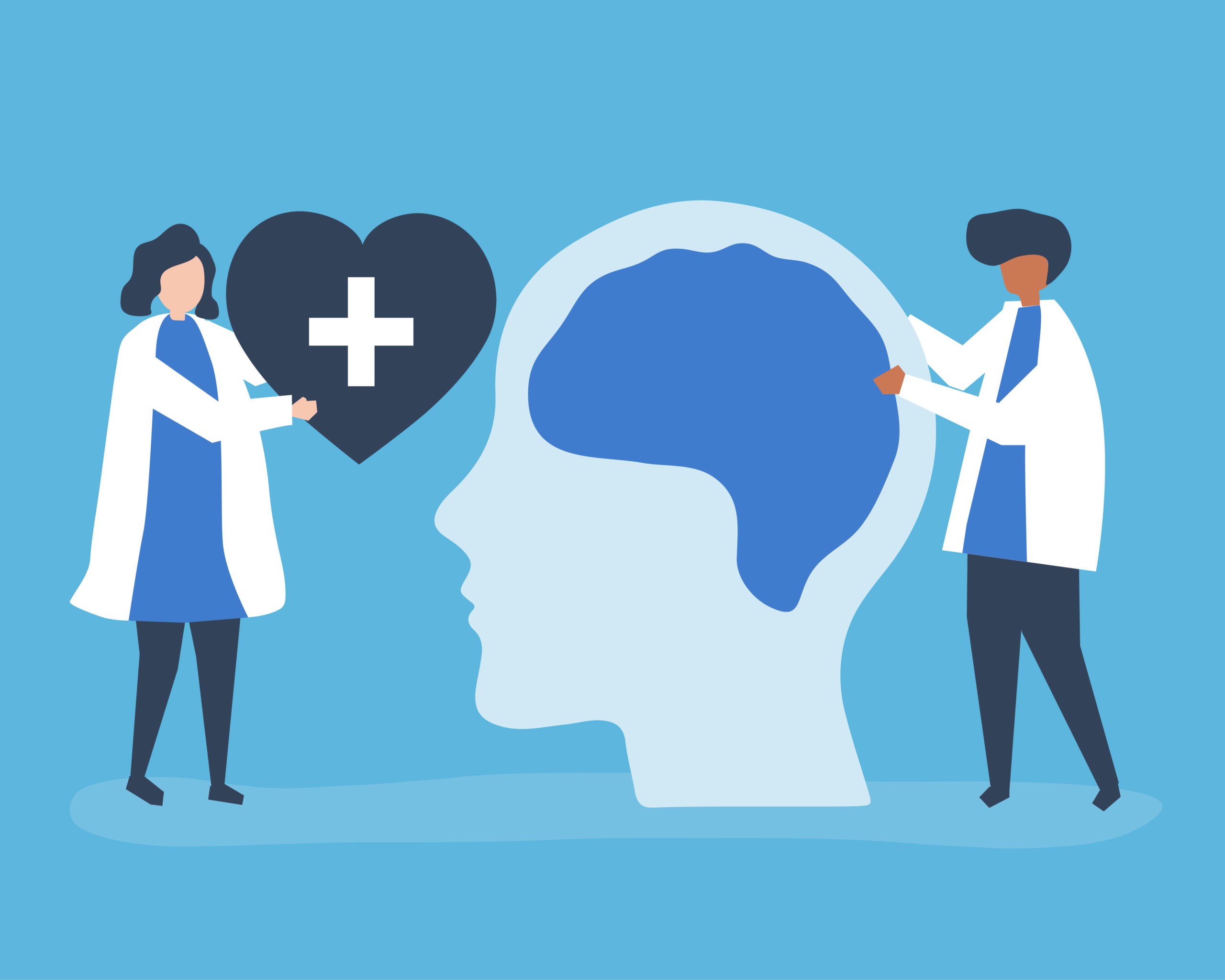
Group health insurance is a form of employer-sponsored health coverage where members of an organization enjoy collective health benefits covered by a health insurance company.
These health insurance companies offer numerous medical and surgical benefits but don’t give sufficient attention to mental health services. While most insurers provide some level of mental health coverage, you might still need to handle out-of-pocket costs.
As an employer or an employee considering group health insurance coverage, choosing an insurance company should be largely dependent on the extent to which they cover mental health services, because of how important mental health is.
There are many reasons why coverage for mental health is very important. A lot of people experience mental health conditions in both mild and serious forms, and for some people with these conditions, there is a need for constant therapy.
In America, the cost of medical treatment is often very high. A person battling mental difficulties might be responsible for paying for prescription medications and outpatient care, which are both difficult to afford.
Without insurance, therapy sessions and consultations with mental health professionals can cost thousands of dollars a year. So, with the aid of health insurance plans that provide mental health coverage, it will be easier for people to find stability in their lives.
Mental health is just as important as physical health, but unfortunately, many insurance companies do not view them equally. The level of coverage for mental health is generally not as effective or fulfilling as that of physical health.
In 2008, the Mental Health Parity and Addiction Equity Act (MHPAEA) was passed to address the disparity between physical health and mental health coverage. The mental health parity law requires health insurance coverage for mental health and addictions to be similar to that of physical health insurance.
Here’s an illustration of how this law works:
In companies with group health insurance plans, the insurance company will charge a copay (a fixed out-of-pocket amount for a service covered by the insurer) for various types of health visits.
If the copay for visiting a medical or surgical office is $30, the mental health parity law ensures that the fee for visiting a mental health professional cannot be much higher, say, $50.
The mental health parity act also ensures that health insurance providers do not limit access to mental health services by unnecessarily restricting the number of yearly visits related to mental health care.
Despite this law, mental health and physical health do not get the same amount of attention in the insurance marketplace. Also, some employees are reluctant to make use of mental health services under the coverage of their company’s group insurance plan.
Even in cases where an employer regards mental health benefits highly and includes them in their insurance plan, employees might independently seek mental health treatment, regardless of the out-of-pocket costs.
Before an insurance company pays an employee’s claim, they will need a mental health diagnosis. Some people might be hesitant towards getting diagnosed by a professional that is connected to their employer.
In a bid to improve the standard of living and access to essential health benefits for Americans, the Affordable Care Act (ACA) was introduced in 2010. Also called Obamacare, the Affordable Care Act is aimed at increasing insurance coverage among uninsured citizens.
To ensure maximum effectiveness, the ACA consists of 10 benefits that all companies that provide health insurance are expected to grant to people who buy health insurance plans, and they are:
From the list above, mental health services are included among the benefits of a health insurance plan. Even if people might need to pay occasional out-of-pocket costs, mental health services such as in-person and online therapy services are more attainable with the aid of the Affordable Care Act.
When it comes to providing coverage for mental health benefits enjoyed by employees, the specifics are different, depending on the type of health insurance plan and the insurance provider.
Below are some of the common forms of mental health care that most health insurance marketplace plans cover.
This includes visits to mental health professionals like psychologists, psychiatrists, and social workers. The number of visits might be limited by your insurance provider unless a high number of visits is medically necessary.
Not all forms of mental therapy need to be conducted in person. With the rise of technology, you can have consultations for some mental health issues online, with positive results. This can be an advantage in general since therapy cost is often lower when sessions are done online. Your mental health insurance plan should cover online therapy since it is relatively cheap.
Some mental health conditions like depression, attempted suicide, violence, substance abuse, and psychosis might require immediate attention. Proper insurance plans should offer coverage for when a customer is battling any of these urgent mental health issues.
Addiction is one of the most common mental health issues that people face. An addiction might be chemical (addiction to a substance) or behavioral (addiction to compulsive behaviors or habits). Considering how negatively addiction can affect people’s lives, a proper insurance company should provide health insurance for addiction care.
Also, an insurance company might offer health insurance coverage for a dual diagnosis, which is when a behavioral health condition coexists with a mental health condition. For instance, substance abuse or addiction can be diagnosed alongside depression, with each condition making the other worse.
The cost of mental health insurance is affected by the coverage offered by the insurance plan that you choose. If your plan either has a lot of coverage or allows you to access out-of-network mental health care services, then it is likely to have a high premium.
The Affordable Care Act requires that companies in the health insurance marketplace cover mental health. So, if a company subscribes to group health insurance for its employees, the cost of mental health insurance will simply be the cost of group health insurance for each employee.
We’re ready to help! Call today: 800-903-6066